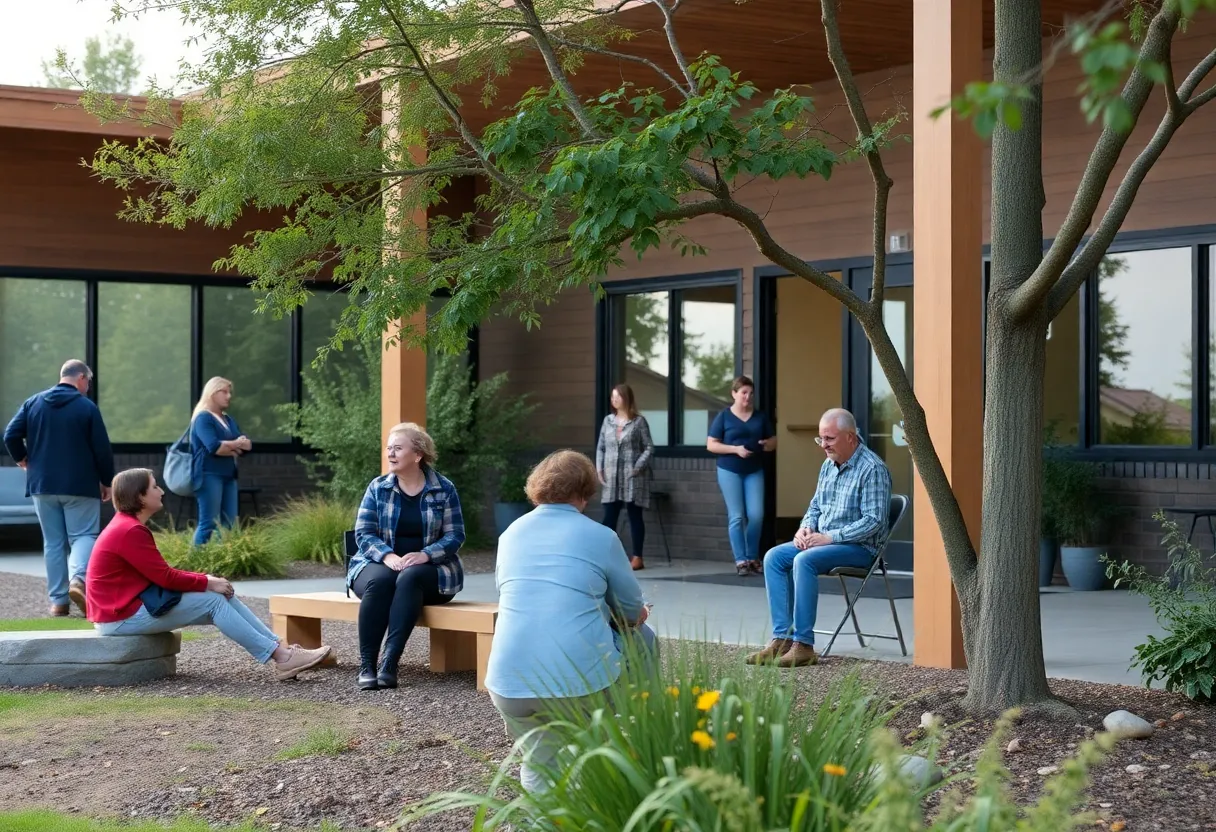News Summary
Central Minnesota’s mental health providers, including the CMMHC and Woodland Centers, are facing significant challenges due to reduced reimbursements, leading to layoffs and service adjustments. As demand for mental health services grows, providers struggle with limited resources. Despite efforts to adapt, including new support hubs and telehealth services, the landscape of mental health care remains precarious. Community initiatives aim to address the growing needs, especially for youth and early childhood mental health, amidst a backdrop of financial constraints.
Challenges Faced by Mental Health Providers in Central Minnesota
Central Minnesota is facing a significant, yet concerning shift in how mental health services are administered. The Central Minnesota Mental Health Center (CMMHC) has announced a necessary restructuring in response to reduced reimbursement rates from insurance companies. This has been a primary concern, as the Chief Clinical Officer has identified inadequate reimbursements as the root issue affecting service delivery.
A Growing Demand, Yet Limited Resources
With rising operational costs for both mental health and chemical health services exceeding what is being reimbursed, the CMMHC had to make some tough calls. Recently, about 45 to 60 clients lost some personal assistance from their coordinators, meaning they have been redirected to other community mental health agencies. This isn’t only a decision made locally; other treatment facilities throughout Minnesota are grappling with the same issues, resulting in layoffs being a frequent occurrence.
Changes in Staffing
Specifically, CMMHC had to lay off two targeted case management program coordinators, while two additional staff members chose to resign shortly afterward. In a positive twist, one existing team member was moved up to a program manager position, as the organization is actively searching for new recruits to fill two open positions, leading to a net reduction of three staff members overall. Furthermore, the detox/withdrawal management program was not spared, witnessing a loss of one full-time employee and reduced hours for their remaining team members.
Commitment to Service
Despite these changes, the organization remains committed to providing care for those in need, as all 16 beds in the withdrawal management unit are consistently utilized. Although two specific programs are facing cuts, there are many other services where demand and utilization continue to rise. CMMHC currently employs approximately 250 people and has seen a record influx of individuals seeking help at its crisis facility.
A Look at Other Providers
Similarly, the Woodland Centers have also been affected. They’ve witnessed a decline in Medicaid revenues, seeing a drop from 70% in 2023 to 61% in 2024 due to recent funding rollbacks. This financial crunch has meant providing care with little to no compensation. In 2024, Woodland Centers served 4,762 clients, a noticeable decrease from the spike of 5,324 clients in 2023.
Preparing for the Future
The CEO of Woodland Centers mentioned being proactive, preparing for various scenarios in light of funding uncertainties. This organization continues to enhance efficiency while helping clients navigate their insurance situations and forming partnerships with community organizations to best meet client needs. An alarming statistic indicates that 6.7% of Woodland’s clients were reported as homeless, underlining the critical link between housing and mental health challenges.
Support for Youth and Students
Amid these hurdles, there’s a glimmer of hope with the introduction of two new support hubs at local schools, thanks to a generous federal grant of $2.5 million over the next five years. This initiative is geared towards connecting students and their families with expanded access to not just mental health services, but also dental care. The program aims to be highly accessible, employing materials in multiple languages to address community needs derived from recent surveys.
Expanding Early Childhood Support
Following a notable 390% increase in mental health referrals for children aged zero to five from 2016 to 2020, CentraCare’s Clara’s House is stepping up, planning to expand services to meet early childhood mental health demands. A staggering 31% of local residents have reported experiencing mental health conditions, indicating a substantial need for accessible mental health care.
Embracing Telehealth Solutions
Lastly, Acquire Mental Health Clinic has recognized this pressing demand by expanding its services, including embracing telehealth options in the St. Cloud area. A recent settlement between state officials and an insurance provider aims to enhance access to mental health services, ensuring compliance with mental health parity laws and addressing prevalent access issues.
The landscape for mental health services in Central Minnesota is changing, but organizations remain resilient, optimistically aiming to stabilize their service offerings and continue meeting the growing demand.
Deeper Dive: News & Info About This Topic
HERE Resources
New A.I.M. Wellness Center to Open Its Doors to the Community
Nursing Homes Innovate Revenue Strategies with Technology
Governor Healey’s Budget Proposal Sparks Outcry Over Mental Health Cuts
New Training Program Promotes Community Resilience After Wildfires
Woodlands Officecentre Revamps with New Tenants
Stepping Stones Breaks Ground on Group Home for Adults with Mental Illness
Severe Cuts and Layoffs Hit Community Clinical Services in Maine
New Mental Health Treatment Program for Inmates
Michigan Enhances Mental Health Support with New Units
Tragic Workplace Accident Claims Life in Dundee
Additional Resources
- KNSI Radio: Central Minnesota Mental Health Center Restructures Amid Insurance Cuts
- St. Cloud Live: Two St. Cloud Schools Offer Expanded Mental Health Support
- Star Tribune: Rural Mental Health Clinic Challenges in Minnesota
- Brainerd Dispatch: Unlimited Learning Program Focuses on Mental Health Issues of Youth
- Wikipedia: Mental Health
- Google Search: Mental Health Services







